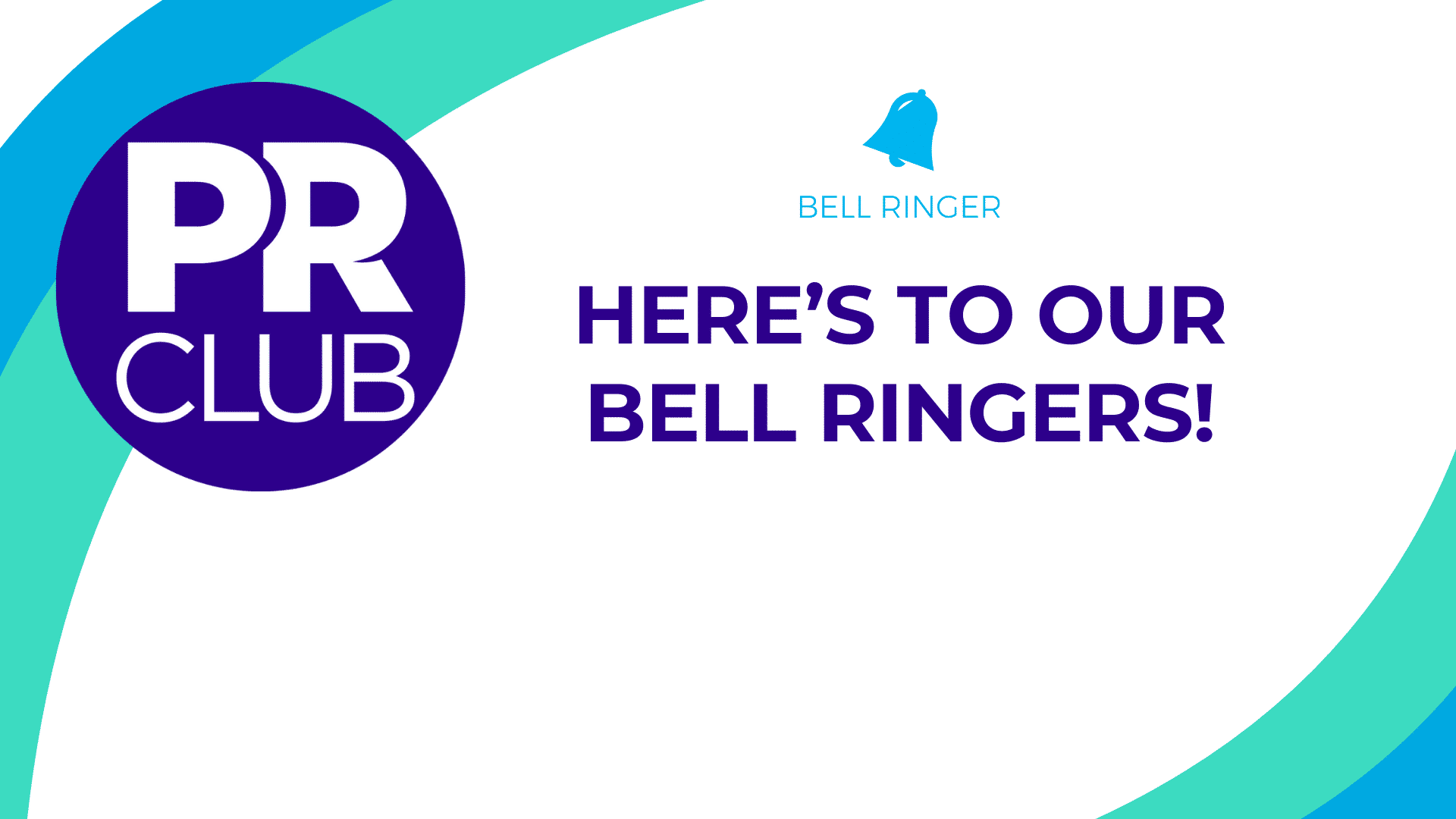First, congrats to all the 2021 PR and communications graduates! Your senior year of college might have been nothing like you expected, but that’s probably the best way to prepare you for a career in communications. From opportunities as a freelancer, to finding the agency size that’s just right for you, to knowing what industries might be most appealing, or even to figuring out if you should specialize, there are so many opportunities with a communications career. As you set forth establishing yourself as the amazing professional you are, the PR Club has a few tips to help you figure out your path.
Freelance
Now is the most opportune time for talented communications writers/content developers to advance their careers, and take control of what they work on, for whom and at what price. This entrepreneurial market is called “the gig economy.” It’s simply about companies needing talented people to complete projects within a set scope, and it doesn’t matter whether you’re doing it while in school, working days at a retail store, bussing tables at night, living in multiple countries, etc. If you have the drive, ability and an internet connection, you’re a candidate.
Demand for high quality open talent is there: you just need to know where to look, how to promote your skills and be willing to take a chance. These tips will help your get started:
- Pull together a capabilities one-pager (or resume) and a handful of samples; then, update your LinkedIn profile to match.
- Research gigs (projects/opportunities) on the web, in social media groups, through industry associations, and within your network of friends/family/teachers/colleagues (and the companies/people they know).
- Dig deeper into sites like Topcoder (if you’re interested in technology), Verblio, Remote PR Jobs, Writers Work and the many others that’ll appear with a quick internet search to find the gigs that best fit your skills.
- Scan online career sections of PR/COM publications and job boards (filter terms: remote, freelance, contract, part time).
- Apply, secure something and knock it out of the park, so you can continue building an excellent reputation.
Opportunity is yours for the taking!
Jessica Ann Morris, Founder and Managing Director, jam:pr
Mid-Size Agency
Making your first employment decision is an in-depth process. There are so many things to consider! Do you want to work for a large agency? Or somewhere small and boutique? Or do you want to go in-house and work for a company? While there are a lot of things to consider in choosing your first job, you may be able to have a little mix of everything with a mid-sized agency. A mid-sized firm takes the personable, tight-knit benefits of a small agency, mixed with the resources and technology of a larger firm. Mid-sized organizations often offer employees more flexible work options and a bit more autonomy than larger companies do, while still providing engaging clients and a fast-moving work environment. Mid-sized firms are often able to expand and contract at will–adding in more team members or outsourced projects for larger clients, or tightening up for smaller budget non-profits. At a mid-sized agency, you can have flexibility, managerial growth, and a little bit of everything you were looking for.
Just like Goldilocks, a mid-sized agency could be just right.
Kaitlynn Cooney, Account Supervisor at Brodeur Partners
Boutique Agency
When I first graduated I knew I wanted to go into PR. However, I didn’t realize how many questions would arise once I started deciding where I may end up. Once I realized I wanted to land at an agency over in-house to start, I then had to weigh out pros and cons of a small agency or a larger agency, until I accepted an offer at a boutique agency. From day one I was thrown right into client work and felt like a valuable member of the team. There is no faster way to learn than to dive in head-first. I have since moved on to a much larger agency where I have been exposed to opportunities with bigger clients and bigger budgets than I could have ever imagined. Since I now have internal client teams that are bigger than my previous agency, I have many new PR Pros to learn from. I wouldn’t trade my experience at my first boutique agency for a minute as it taught me everything I know about the industry, but the exposure to new clients and opportunities such as event planning has been very exciting. My biggest piece of advice is to raise your hand to help or join groups whenever possible, whether you are a part of a big or small team.
Holly Bertschmann, Assistant Account Executive at Matter Communications
Healthcare Focus
I studied government in college, and landed my first job/internship at a public affairs and communications agency. Throughout that experience, I allowed my curiosities to emerge and guide me through the various projects I gained exposure to, which is how I was first introduced to media relations. When I started my first job in PR, I thought that I would focus on sustainability and green technology. However, in an effort to prove my value quickly, I raised my hand for any and all learning opportunities, even if it meant being thrown into something that I had no experience in. Taking that risk gifted me exposure to the health tech space, which I now focus on exclusively. Raise your hand for new opportunities – you never know when you’ll stumble on something that you love and are incredibly passionate about.
Angelica Bishop, Account Supervisor at PAN Communications
B2B Tech Focus
I was fortunate that I had secured a handful of different internships while I was still in school. Ironically, though, none of them were in the business to business (B2B) space, which is the sector I currently work in. When you’re fresh out of school and job hunting, it’s easy to think that you know exactly what you want to do. I was originally dead set on working in business to consumer public relations. But, I ended up at a B2B-focused tech agency and discovered that there was this whole other world that I hadn’t yet been exposed to. If I had been narrow-minded in my job search, I certainly wouldn’t have found my natural knack for learning about the new and emerging technologies driving businesses today. The industry also boomed during the pandemic, presenting several learning opportunities across a wide range of SaaS clients. I recently transitioned into an in-house role, and can say that my agency days prepared me for anything. As you set out on your job hunt, have an open mind and be ready to volunteer for new tasks. The more you get your hands into, the better equipped you’ll be for future opportunities.
Jackie Blundell, content and social media manager at Devo
Social Media Specialty
Sometimes, where you start is not where your interest and passion leads. I started in a traditional PR role doing media relations work and then pivoted to social media. Deciding on a specialist position was easy but the transition was hard. For a long while, I was in hybrid roles where my time was split between media relations and social media. However, that was great preparation for me to eventually specialize in social media. Having the background in PR meant I had really strong messaging skills and knew how to build relationships with people. Social may seem like a one to many type of communication, but it’s really about building relationships with individuals to create community. My advice for anyone looking to specialize is to volunteer to learn as many different things as you can when you start your career. It’s a good way to see what piques your interest and learn where you have a natural interest or passion. Plus, those looking for a little extra help on your team will appreciate the enthusiasm and support!
Amanda Fountain, Director of Social Media Strategy at March Communications
Media Specialty
One of the best pieces of advice I received as an undergrad was that your first job out of college is not your career – every professional experience is a stepping stone (and each stepping stone builds what will become your career.) I decided to take a job right after graduation as an account manager at a healthcare tech startup where I learned invaluable skills in client relations and honed my writing skills – responsible for short and long form content, dipping my toes in PR and marketing every chance I got. After that, I decided to make the jump into agency life as an account coordinator. Green to media and brand new to PR, I said yes to everything – I worked on various accounts across industries and had exposure to all types of projects: from integrated marketing and writing case studies to traditional media relations and drafting press releases. When I joined PAN, my passion for healthcare resurfaced and over time, I started to become more ingrained in our healthcare practice. I knew that I couldn’t be a SAE forever, but didn’t want to give up the relationships I developed with reporters – right then and there I realized that media was my favorite part of the job. As I advanced to the supervisor level, I decided to join our media relations team and now specialize in providing high level media strategy to some of our most innovative healthcare brands. In a true “full circle” moment, my first employer is no longer a startup and is now a client. To reiterate – your first job is not your career, but every experience along the way has the power to shape your interests, passions and future.
Abbey Clark, Media Manager at PAN Communications
This article includes contributions from PR Club Board Members.




